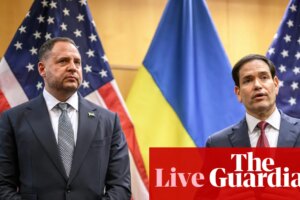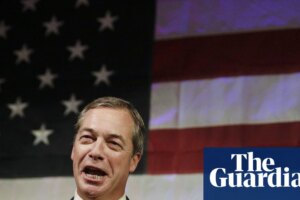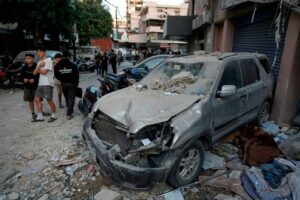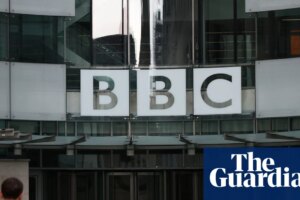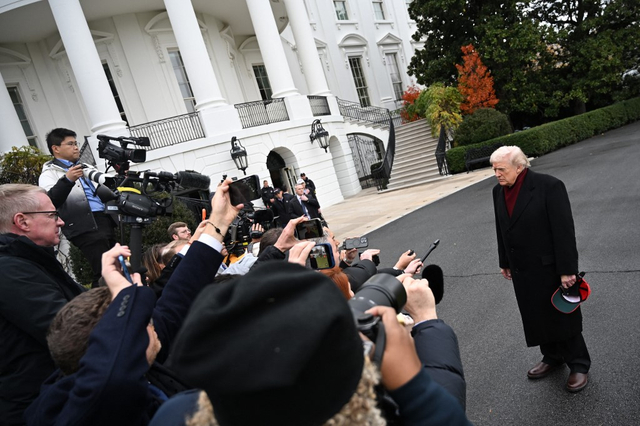
An interview with Andreas Umland by Simon Schröder for the German daily Frankfurter Rundschau. The original article can be found here.
Simon Schröder (SS): How do you assess Trump’s peace plan in general?
JOIN US ON TELEGRAM
Follow our coverage of the war on the @Kyivpost_official.
Andreas Umland (AU): This is basically a repeat of Moscow’s previous attempts to instrumentalize the US to enforce Russia’s war agenda by peaceful means. The plan is largely a list of Russian demands. There is little in it for Ukraine. In this respect, the plan is absurd because it is only about realizing the Russian Federation’s war aims.
SS: Isn’t the plan perhaps surprising, given that Donald Trump had previously cancelled talks with Vladimir Putin in Budapest and now negotiations appear to have taken place via envoys Steve Witkoff and Kirill Dmitriev after all?
AU: Yes, it was a surprise, and it raises the question of what is behind it. Are different people or different camps in the White House behind it, pursuing different foreign policies? Or is it due to Trump’s mood swings? Or – and this has long been suspected – is it an expression of Putin having compromising material on Trump, which he is using to put pressure on the US administration in the negotiations? It must be something, because the contradictions in the approaches, the rhetoric and also in practical politics are obvious.
SS: Several points have been circulating so far. Now even the entire list of the 28-point plan. Are there any points that would be acceptable to Ukraine?
Other Topics of Interest
High Hopes, High Tension: Geneva Talks ‘Most Productive’ as Trump Blasts Kyiv From Afar
Behind closed doors, the US, Ukraine, and Europe edge toward consensus on a new peace framework after days of divergence.
AU: There are some strange elements, such as Ukraine becoming a member of the EU, which neither the US nor Russia have anything to do with. There are formulations that appear to be in Ukraine’s favor, but have little to do with the war. These points are probably only intended to obscure the fact that the plan essentially means a permanent undermining of Ukraine’s territorial integrity and national sovereignty.
Another peculiarity is that both Russia and the US are permanent members of the UN Security Council and official nuclear-weapon states within the Nuclear Non-Proliferation Treaty (NPT). China is also de facto on Russia’s side. Now, three of the five nuclear weapon states and three of the five permanent Security Council members are busy transforming a UN member and an official non-nuclear weapon state under the non-proliferation regime from a nation state into an undefined territory.
SS: These talks were exclusively between the US and Russia. It almost seems like a dictated peace. Would you go along with that?
AU: Yes, it’s about Russia’s war aims, which are to be achieved by diplomatic means. The situation is reminiscent of an old statement by the Prussian military historian Carl von Clausewitz at the beginning of the 19th century. In an analysis of the Napoleonic Wars, Clausewitz wrote at the time that the conqueror does not want war, he simply wants to march in peacefully – without resistance. That also seems to be the case here: Russia does not want war. It wants to see an end to Ukraine’s national sovereignty and territorial integrity. Russia is now trying to achieve this again through diplomatic and other non-military means.
SS: Europe and Germany are completely left out of these negotiations. Is it also a failure on Europe’s part that it is not involved at all? And how should Europe’s allies in Ukraine respond?
AU: Yes, in a sense this is a consequence of the military, political and diplomatic impotence and incompetence of the Europeans, who are too slow, too passive and too reactive. They are part of the discussion, but are unwilling or unable to take any real initiative. In fact, since this year, the US should be left out of the Ukraine negotiations. After all, they are no longer significantly involved in supporting Ukraine. What Ukraine still receives from the US and what is important are intelligence data and satellite images. But there is no more material aid. Today’s US arms deliveries are paid for by European countries on behalf of Ukraine. In this respect, it is unclear why the US still plays such a major role, even though it is hardly involved anymore.
SS: Is it perhaps simply Trump’s ego that makes him want to take credit for peace, i.e. that peace is achieved through his efforts?
AU: Yes, that is certainly behind it. He wants to use the remaining influence of the US to achieve some kind of peace agreement because he has ambitions to win the Nobel Peace Prize. However, this is not really about war and peace. It is much more about whether a UN member can retain its territory and sovereignty. Now he wants to create peace by essentially giving Russia what it wants. According to Trump’s idea, this should be rewarded by the Norwegian Nobel Prize Committee, but that will not happen.
Even if everything were to proceed as outlined in the so-called peace plan, I do not believe he would receive a peace prize for it. That would be rewarding Russia for a war of conquest and the nuclear blackmail practiced by the Kremlin. There will be no Nobel Peace Prize for that.
SS: A quick look at possible sanctions: What would have to change for Putin to deviate from his maximum demands, also with regard to the front?
AU: Ukraine would need more opportunities to carry out long-range strikes against Russia. Then Ukraine would be in a position to destroy both military and war-critical industrial facilities in Russia. That would change Moscow’s calculations. The second factor is sanctions. If Russia came under economic pressure, it would change its position.
SS: What particularly concerns you about the Trump administration’s peace plan?
AU: What is disturbing about this is that three of the five permanent members of the UN Security Council and official NPT nuclear weapon states – namely Russia, China and the US – are now participating in the destruction of a regular UN member. Furthermore, Ukraine used to have nuclear weapons, which it gave up in exchange for security assurances and guarantees from these five states. This basically means that the UN system and the non-proliferation regime are at an end. The purpose of the United Nations and the nuclear non-proliferation regime is being turned on its head by Russian-Chinese-American pressure on Ukraine.
AU: Ukraine is being punished for trusting the United Nations, the logic of the non-proliferation regime and the security assurances of 1994 in the Budapest Memorandum and other documents. (At that time, Beijing also issued a government statement, which is less well known. China also explicitly recognized Ukraine’s borders and sovereignty in 1994 and later in a friendship treaty with Ukraine). But practical politics now runs counter to this. The world system that emerged after 1945 has thus come to an end.
Reprinted with the author’s approval.
The views expressed in this interview are not necessarily those of Kyiv Post.


